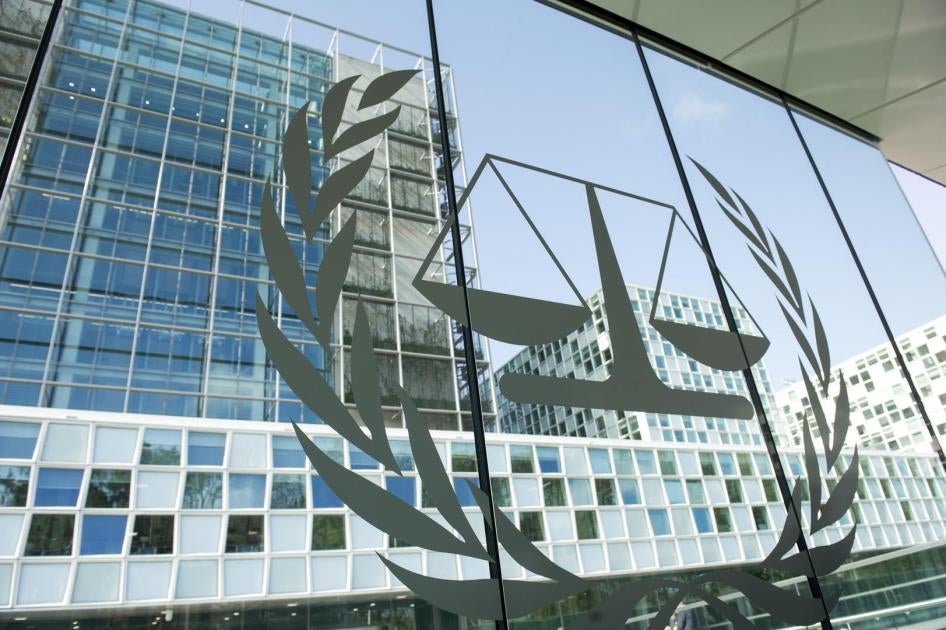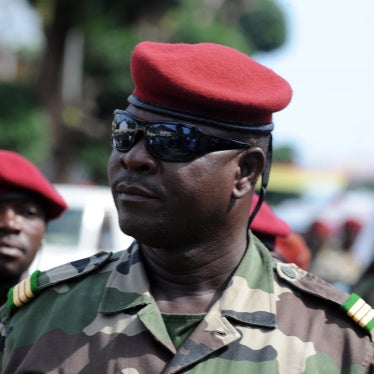The withdrawals by South Africa and Burundi from the Rome Statute of the International Criminal Court (ICC) pose a real challenge to the evolving system of international justice centered on the ICC. Coming after escalating criticism from a small number of African leaders, the withdrawals represent a loss to the court, to the victims it serves and a threat to perceptions of the ICC’s legitimacy. This pushback is “buyer’s remorse” of a core principle of the Rome Statute—the irrelevancy of official position in possible prosecution before the court. While giving a respectful airing to different views, strong court-supporting states parties must remain firm in their defense of the integrity of the Rome Statute so that the ICC remains a “court worth having.” Fundamental principles agreed to in Rome cannot be “bargained off” in the face of exorbitant and baseless demands. Even with additional withdrawals, the outcome could be a strengthened Rome Statute system.
In withdrawing from the ICC, the government of South Africa cited a purported conflict between its ICC obligations and its ability to interact with leaders as a regional peacebroker. Significantly, a South African court had found that the Zuma government violated domestic law when it failed to arrest ICC fugitive President Omar al-Bashir of Sudan during his visit to the country for an African Union summit in 2015.
There is much at stake. Giving sitting leaders immunity for the most serious crimes would create perverse incentives for alleged perpetrators to hold onto power indefinitely or to gain power to avoid prosecution. Through its current about face on global justice, the Zuma government is sending a message to the nearly 20,000 African victims who have or will be participating in ICC proceedings.
Withdrawal does nothing to address the real gaps in the reach of the international justice system, including the failure of key powers, like the United States and Russia, to sign up to the ICC treaty as well as those stemming from the veto prerogative of the Permanent Members of the UN Security Council. These ugly double-standards need to be addressed, but the solution lies in expanding the ICC’s reach, not undermining it.
Doubtless, South Africa’s withdrawal is a blow. Its government played a vital role in the negotiation of the Rome Statute. At his invitation, I participated in a September 1997 meeting of the Southern Africa Development Community’s (SADC) justice ministers convened by Nelson Mandela’s Minister of Justice, Dullah Omar, outside Pretoria. Minister’s Omar’s objective was to work with his counterparts from SADC to formulate joint in the ongoing negotiations. Six weeks later, in the United Nations General Assembly I heard South Africa’s UN Ambassador proudly proclaim “the ten SADC principles” for an effective, independent and impartial ICC. This leadership flowed from self-confidence following the end of apartheid and the promulgation of a historic new constitution enshrining human rights and respect for the rule of law domestically as well as globally.
South Africa’s regressive step could likely provide political cover for additional withdrawals possibly by Kenya and others. Nairobi has mobilized opposition to the ICC inside the African Union due to the now-withdrawn ICC charges against Kenya’s president and deputy president. The AU has called for immunity of sitting leaders, but so far efforts pushed by Kenya for a mass walkout have achieved a much wider response.
The departure of any one state party is regrettable, but regret must not cloud perspective or diminish principle. A group of departing African states, driven by buyers’ remorse, represents a small fraction of African states parties. The court is hardly at risk of collapse or irrelevance. South Africa’s announcement has prompted an increasing number of states parties to affirm strong support for the ICC’s mission. These include Canada, Switzerland, Slovenia, Czech Republic, to name a few. The withdrawals could lead to a deeper understanding of and commitment to the ICC’s importance as the world’s accountability institution. Most significantly, the withdrawal of a few African governments has prompted strong statements of support for the court from a greater number of African states parties. This activism represents a step beyond July’s African Union Summit in Rwanda. There—at the ministerial level—five states parties, Nigeria, Botswana, Senegal, Cote d’Ivoire, and Tunisia, expressed their opposition to the further development of Kenya’s plan for large scale withdrawal from the Rome Statute. At the summit, several others entered objections to the final resolution. This pushback pierces the fictitious and self-serving narrative that African governments are opposed to theICC. Depending on how events unfold, factoring in additional withdrawals, the result could be a court membership that is slightly smaller but more committed to assisting the ICC.
The next round in this contentious process will play out at the fifteenth session of the Assembly of States Parties meeting. While states should be open to dialogue with South Africa and other countries, they will need to be clear in these discussions on “redlines” to preclude re-negotiation over core ICC principles. The substantive “no go areas” should include any weakening of the provision allowing sitting heads of states to be prosecuted at the cocurt..
Given South Africa and Kenya’s revision of core principles, it could well be that the great majority of ICC countries may find there is no space for principled compromise consistent with integrity of the ICC treaty and the independence of the court. These governments are drawing a circle that cannot be squared. Consistent with Dullah Omar’s visionary leadership in 1997, it is clear that it would be better for those countries unwilling to stand for justice to leave. In the long run it’s preferable for the ICC to be, as former Canadian Foreign Minster Lloyd Axworthy stated in Rome, “a court that is worth having” than one with a larger membership linked by illusory agreement to weakened principles of accountability.
This is not to say that there is not more work to be done to improve the practice of the ICC. The court’s leadership is making progress, but there are still gaps: bringing about more efficient proceedings linked to better case selection; more meaningful victim participation; more court presence in the field and; greater impact in the communities most affected by the crimes alleged. This will all need to take shape as the court extends its reach out of Africa. It is already investigating in Georgia, and the coming years could see investigations in Afghanistan, Palestine, and Ukraine. The extension of jurisdiction will also challenge the more powerful governments—Russia and the United States—that have held themselves outside of the court’s jurisdictional consent regime. Simultaneously, international agencies, donor states and civil society must ramp up efforts to enhance national accountability efforts—the first line of protection for civilians at risk.
These steps will necessarily occur on a more difficult international landscape than the one on which the ICC was created. Back then some deemed that “history had ended.” These changes won’t mollify Jacob Zuma or Uhuru Kenyatta, not to mention Vladimir Putin or Donald Trump. That is another challenge for a court that is needed now more than ever. Precisely because the ICC represents a huge advance in the fight against impunity its path was never going be a straight line forward.
Richard Dicker is the Director of Human Rights Watch’s International Justice Program











